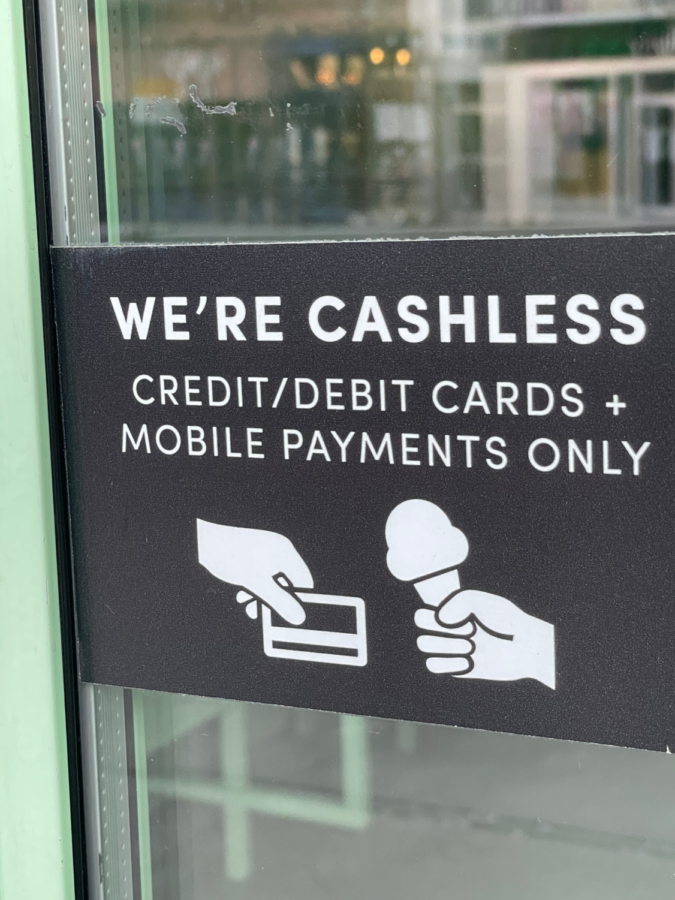The Cashless Revolution Continues in New York City
Some New York City businesses refuse to accept cash payment despite laws requiring them to do so.
The ice cream store Van Leeuwen made headlines last year for refusing to abide by the law, even after it was slapped with over $12,000 in fines.
Is cash still king?
It used to be that small businesses preferred cash to credit cards in order to avoid hefty processing fees that cut into their profits, but in recent years, some New York City businesses have done a 180-degree turn, refusing to take cash and accepting only debit cards, credit cards, or forms of electronic payments such as Apple Pay.
At the beginning of 2020, New York City lawmakers passed a bill requiring businesses to accept cash. However, in a case of questionable timing, the bill went into effect just as the COVID-19 pandemic was beginning. At a time when consumers were afraid to shop in person and avoided contact with people and surfaces to prevent the spread of the virus, swiping a credit card or tapping a phone was suddenly a survival tactic.
Two years later, this trend, although illegal, continues in some small businesses. In light of an uptick in robberies of retail stores, some owners would rather face fines from the government than be targeted by criminals for their full cash register. Credit card payments also streamline the checkout process and allow businesses to staff fewer employees per shift.
The artisanal ice cream store Van Leeuwen made headlines last year for refusing to abide by the law, even after it was slapped with over $12,000 in fines. Even today, the shop continues to refuse cash. Even steps away from other popular ice cream spots, such as Pinkberry and 16 Handles, the Van Leeuwen shop on Second Avenue in Manhattan’s East Village continues to stay cashless.
Anyone who has tapped their phone or credit card to pay quickly for a coffee, a subway ride, or even lunch knows the convenience of not dealing with cash. But what about people with no access to credit, or children who do not have cell phones or debit cards?
“It seems strange not to accept cash at an ice cream shop,” said one passerby outside Van Leeuwen with a young child. “Kids getting out of school don’t have credit cards to pay for a cone.”
Some prefer the old-fashioned way of payment. “There’s something nice about going out with a crisp $20 in your hand to spend on a snack or a magazine,” said Iskander Khan ’22. “It’s a lot less satisfying to tap my phone.”
Others cite privacy concerns over using payment apps, especially with the rise in identity theft and cybersecurity hacks. “I don’t want people to know my business. When you pay cash, the paper receipt is the only evidence. And that doesn’t get stored in the cloud forever.” said Vasu Patel ’22.
Still, most people recognize that digital and credit card payments are efficient, and they welcome the cashless revolution. At Madison Square Garden, where lines to buy a hot dog during a Knicks game can get forty persons deep, vendors do not accept cash. “Just imagine how much longer the lines would be if the cashiers had to give out change on top of everything else,” said Adam Kamenetz ’23. “I just want to get back to the game.”
New Yorkers can file a complaint about a store in New York City that refuses cash payments, including businesses that sell food, such as restaurants and food carts, by calling 311.
Anyone who has tapped their phone or credit card to pay quickly for a coffee, a subway ride, or even lunch knows the convenience of not dealing with cash. But what about people with no access to credit, or children who do not have cell phones or debit cards?
Ben Raab is a Managing Editor/Advisory Editor for 'The Science Survey.' He finds the most appealing aspect of journalistic writing to be its creative...

